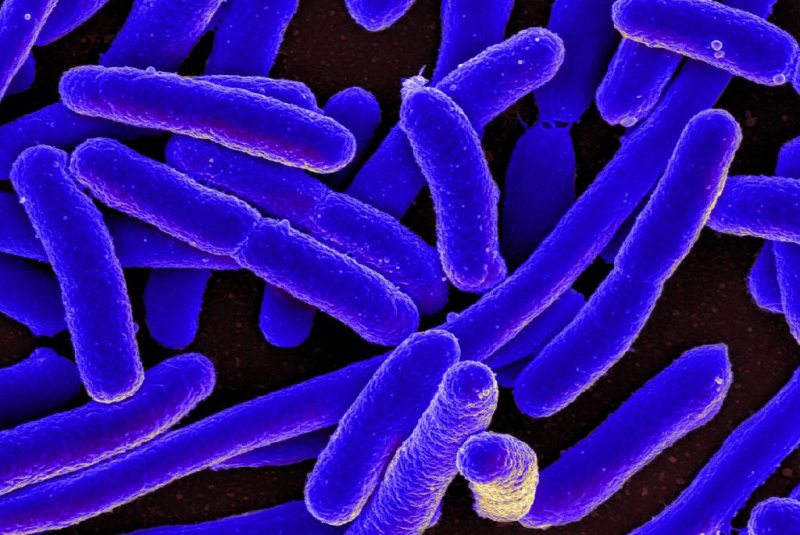Polysorbate 80 exposure did not reduce the number of E. coli bacteria, but did render the infection harmless. Photo by the U.S. National Institutes of Health
EAST LANSING, Mich., Nov. 1 (UPI) -- An additive found in a variety of different foods can slow the effects of E. coli poisoning, Michigan State University researchers found in a study.
Polysorbate is an emulsifier added to many creamy food products such as mayonnaise, ice cream and some chocolates. In a paper published in the journal Biofouling, MSU researchers say this additive attacks the protective biofilm around E. coli bacteria, rendering the microorganisms harmless.
"Biofilms are multicellular communities of bacteria that are usually encased in a protective slime," researcher Chris Waters said in a press release. "We found that polysorbate 80 obliterates the biofilm and takes away the E. coli's ability to damage the host during infection. We think this is due to blocking the ability of E. coli to produce toxin."
During the study, investigators analyzed the potent E. coli strain responsible for killing more than 50 people during a 2011 outbreak in Europe. After testing a number of different compounds, the team found polysorbate 80 neutralized the bacteria's ability to form biofilms in a laboratory setting. Afterward, they replicated the experiment on infected mice by administering the compound in drinking water.
"During our animal infection studies, polysorbate 80 had no effect on the numbers of infecting E. coli. This was a little shocking, especially based on how promising our earlier tests had been," Waters added. "Later, though, our pathology tests showed that polysorbate 80 essentially blocked all toxicity, even though it didn't reduce the number of bacteria."
The research team says their discovery provides an opportunity to treat E. coli infections without relying on antibiotics, which often cause collateral damage by influencing bacteria to release more toxins. In addition to attacking infections without this negative side effect, polysorbate 80 does not require approval from the U.S. Food and Drug Administration to be used for medicinal purposes.
Investigators add their next step will be uncovering how polysorbate 80 inhibits biofilm formation in other infections.















